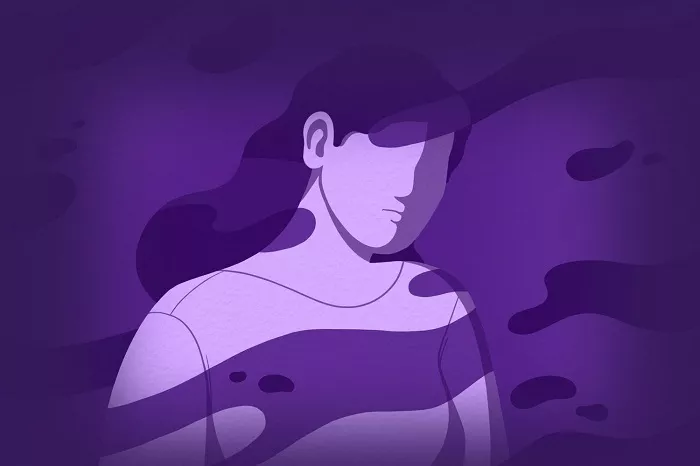One of the most persistent myths about depression is that sufferers are inherently selfish. This harmful stereotype stems from observable behaviors that may appear self-centered: social withdrawal, lack of emotional responsiveness, or inability to fulfill social obligations. However, as mental health professionals, we must challenge this oversimplification and explore the complex reality behind depressive symptoms.
Depression is not a personality trait but a serious mental health condition affecting approximately 280 million people worldwide (WHO, 2023). The Diagnostic and Statistical Manual of Mental Disorders (DSM-5) classifies Major Depressive Disorder as a mood disorder characterized by persistent sadness, loss of interest in activities, and significant impairment in daily functioning. What appears as selfishness is often the visible manifestation of profound neurological and psychological changes.
This article will comprehensively examine:
- The neurobiological basis of depressive symptoms
- Psychological mechanisms behind “selfish-appearing” behaviors
- The crucial distinction between clinical depression and selfish personality traits
- Societal factors that perpetuate this misunderstanding
- Evidence-based approaches to supporting depressed individuals
By exploring current research and clinical insights, we can replace judgment with understanding and stigma with science-based compassion.
The Neurobiology of Depression: Why It’s Not a Choice
Modern neuroscience reveals that depression involves measurable changes in brain structure and function. Functional MRI studies show decreased activity in the prefrontal cortex (responsible for decision-making and social behavior) and hyperactivity in the amygdala (the brain’s emotional center). These changes help explain why depressed individuals struggle with behaviors often misinterpreted as selfish:
Cognitive Impairment: Research indicates that depression reduces working memory capacity by 10-15% (Rock et al., 2014). This makes multitasking, social processing, and emotional regulation profoundly difficult.
Energy Depletion: The basal ganglia, which regulates motivation, shows reduced activity in depression. This isn’t laziness but a neurological energy crisis where even basic tasks require tremendous effort.
Social Processing Deficits: The temporoparietal junction, crucial for empathy and perspective-taking, functions differently in depressed individuals. Ironically, many report feeling too much empathy, becoming overwhelmed and withdrawing as a result.
These biological factors demonstrate that what appears as self-absorption is actually neurological dysregulation beyond conscious control.
Psychological Mechanisms Behind “Selfish-Appearing” Behaviors
Clinical psychology identifies several mechanisms that explain behaviors mistaken for selfishness:
Emotional Blunting: Many depressed patients report feeling emotionally “numb.” This anhedonia (inability to feel pleasure) makes appropriate emotional responses difficult, not from lack of caring but from neurological constraints.
Rumination Cycle: Depressed individuals spend 47% more time in negative self-referential thinking (Nolen-Hoeksema, 2000). This constant mental churning consumes cognitive resources needed for social engagement.
Behavioral Activation Deficit: Depression disrupts the motivation-reward cycle. Where a healthy brain gets dopamine from social interaction, a depressed brain often finds no reward in these activities, leading to withdrawal.
Hyper-Consciousness of Burden: Studies show 68% of depressed individuals avoid seeking help due to fears of being a burden (Cramer et al., 2016). This excessive consideration for others paradoxically leads to behaviors perceived as uncaring.
Depression vs. Narcissism: Key Clinical Distinctions
While both may involve social withdrawal, core differences exist:
Motivation
Narcissism: Withdraws to punish others or seek admiration
Depression: Withdraws from exhaustion and fear of burdening others
Self-Perception
Narcissism: Grandiose self-view
Depression: Overwhelming self-loathing
Response to Help
Narcissism: Rejects help that doesn’t serve ego needs
Depression: Often wants help but feels unworthy
Empathy Capacity
Narcissism: Limited cognitive empathy
Depression: Often excessive affective empathy leading to overwhelm
These distinctions are crucial for accurate understanding and appropriate response.
Societal Factors Perpetuating the Myth
Cultural narratives contribute to this misconception:
Productivity Culture: Societies valuing constant output misinterpret depression’s fatigue as unwillingness to contribute.
Emotional Literacy Gaps: Only 24% of adults can accurately identify depression symptoms (National Institute of Mental Health, 2022), leading to misattribution of motives.
Historical Stigma: Ancient beliefs about melancholy as moral failing still influence modern perceptions subconsciously.
Media Representations: Depressed characters are often portrayed as selfish or manipulative, reinforcing stereotypes.
Effective Support Strategies: Moving Beyond Judgment
Evidence-based approaches for supporting depressed individuals:
Behavioral Activation
Gently encouraging gradual engagement in meaningful activities (Jacobson et al., 2001)
Communication Adjustments
- Replace “You never…” with “I notice…”
- Avoid toxic positivity (“Just cheer up!”)
- Practice active listening without problem-solving
Environmental Scaffolding
- Help establish routines
- Assist with decision fatigue (offer limited choices)
- Create low-pressure social opportunities
Professional Resources
- Cognitive Behavioral Therapy (CBT) techniques
- Medication when appropriate
- Support groups to reduce isolation
Conclusion
The question “Are depressed people selfish?” stems from fundamental misunderstandings about mental illness. Neuroimaging, clinical research, and psychological studies consistently demonstrate that behaviors appearing self-centered are actually symptoms of a debilitating condition affecting cognition, emotion regulation, and social functioning.
Rather than moral judgments, depressed individuals need:
- Accurate understanding of their condition
- Access to evidence-based treatments
- Social support systems informed by science
- Patience as they navigate recovery
By replacing outdated stereotypes with neuroscientific and psychological knowledge, we can create more compassionate communities better equipped to support mental health. The path forward lies not in questioning character, but in providing research-backed understanding and care.
Related topics:
- Can Depressed People Have a Normal Life?
- What Is the Most Depressed State?
- What To Do If You Think You’re Depressed?


